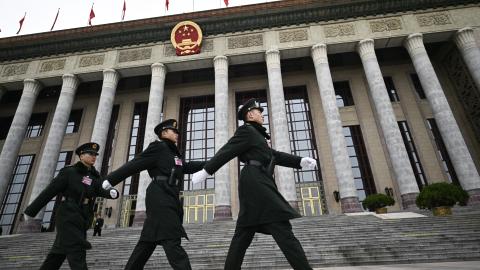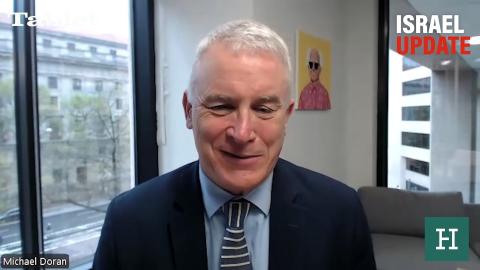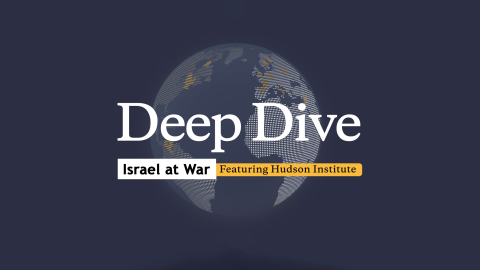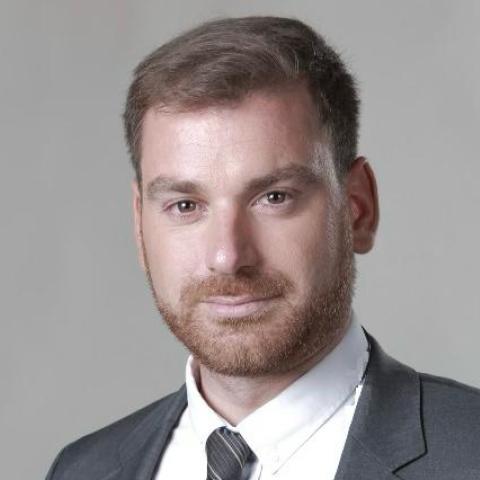
The Agendas of Jew Hatred
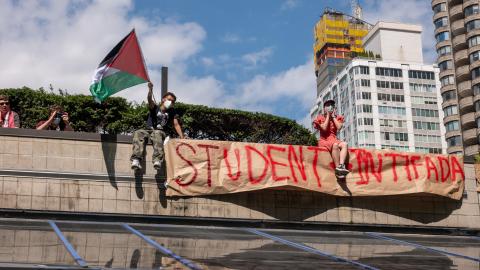
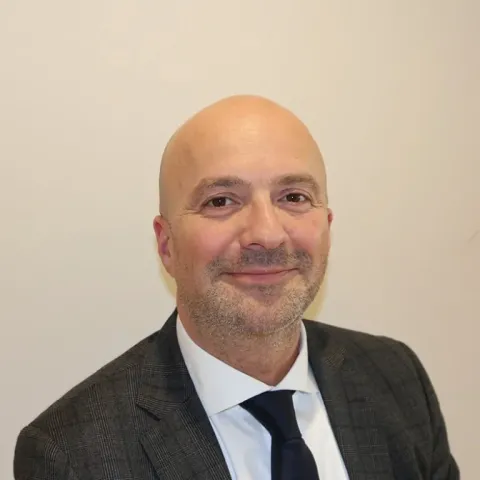
Transatlantic Institute, American Jewish Committee
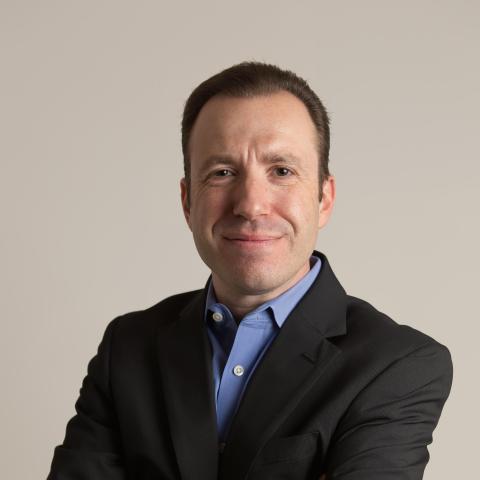
Vice President, American Foreign Policy Council
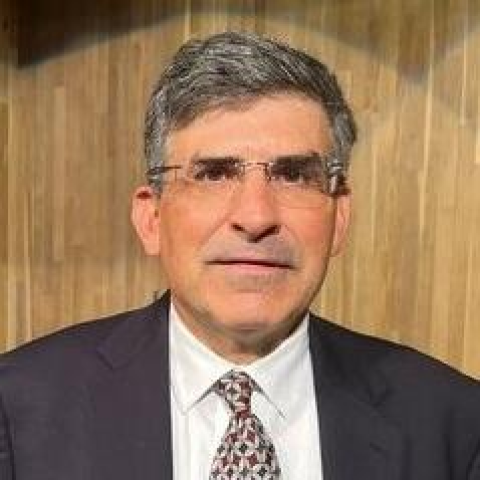
Professor, School of Civic and Economic Thought and Leadership, Arizona State University
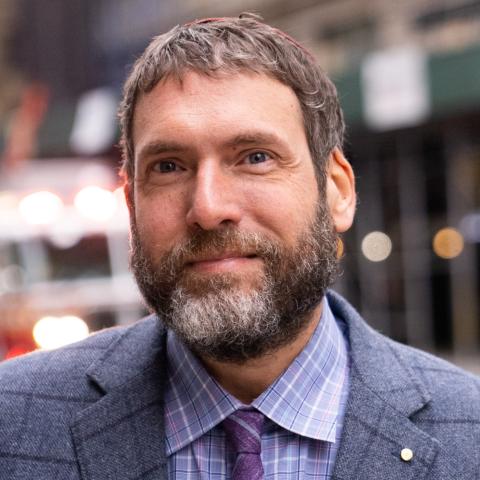
Senior Fellow
Liel Leibovitz is a senior Fellow at Hudson Institute. His work focuses on thinking about anti-Semitism as a national security threat.

Senior Fellow and Director, Center for Peace and Security in the Middle East
Michael Doran is a senior fellow and director of the Center for Peace and Security in the Middle East at Hudson Institute.
Soon after Hamas attacked Israel on October 7, the Jewish state found itself under attack on seven fronts: in Gaza, the West Bank, Lebanon, Syria, Iraq, Iran, and Yemen. Meanwhile, its enemies came out of the woodwork in Europe and North America as antisemitic and anti-Zionist demonstrations exploded on college campuses and city streets. From Houthi attacks on international shipping to “tentifadas” on American campuses, it is not hard to see that something more than just support for Gaza is at work here. Many different groups are hitching a ride on the Israel-Palestine conflict.
What are the hidden agendas of antisemites and anti-Zionists? What are the implications of this agenda for national security? And what is to be done? To discuss these questions, Hudson’s Michael Doran hosts Daniel Schwammenthal, the director of the American Jewish Committee’s Transatlantic Institute; Ilan Berman, the vice president of the American Foreign Policy Council; Professor Paul Caresse of Arizona State University; and Senior Fellow Liel Leibovitz.
Event Transcript
This transcription is automatically generated and edited lightly for accuracy. Please excuse any errors.
Michael Doran:
Hi, good afternoon. I’m Mike Doran. I am a senior fellow at the Hudson Institute where I am also the director of the Center for Peace and Security in the Middle East. And you are joining us today for an event on the agendas of Jew hatred.
We are looking at antisemitism and anti-Zionism at the multiplicity of agendas behind it. It doesn’t take long after you look at the Houthis attacking the commercial shipping or the tentifadas on America’s campuses to see that there’s a lot more going on here than just protests about Israel or hatred of Jews, that there are lots of other agendas at work.
But we want to get to the bottom of that, try to understand it a little better and maybe even come up with some ways of addressing it. I have a fantastic panel here. I can’t wait to get into the discussion with them.
I’ll just very quickly introduce them. We have from Arizona State University, Professor Paul Caresse. He’s a professor in the School of Civic and Economic Thought and Leadership at Arizona State. And he was the founding director of that school.
We have, to my immediate left right here, Ilan Berman, he’s a senior vice president at the American Foreign Policy Council here in Washington, DC. To my far left is Daniel Schwammenthal. He is the director of the AJC, that’s the American Jewish Committee, the American Jewish Committee’s Transatlantic Institute in Brussels, Belgium.
And last but not least, we have Hudson’s own Liel Leibovitz. He’s on the screen there and he is also an editor at large at Tablet Magazine. Paul, let me turn to you. You’re working in academia, you’re seeing what’s going on our campuses up close.
It seems to me at least that the universities have really been the incubators of a lot of the thinking that we’re contending with here. Can you just give us a bit of an overview about where is this coming from and what in your mind should we do about it?
Paul Caresse:
Thank you, Mike. Thanks for inviting me and it’s great to be on this panel. Yes, I agree that a major source, maybe even the epicenter of the surge in antisemitism we’re seeing in America really starting at least a decade ago, is the American university, especially elite college and university campuses, whether they’re public or private.
You could probably map that according to where Students for Justice in Palestine has its chapters. I think over 300 across the United States. One further way of mapping this is that the more selective and elite the campus is, the greater the preponderance of faculty on that campus who are propagating the illiberal postmodernist and either quasi or fully Marxist views that are hostile to any traditional understanding of America.
And then one manifestation of that is what we now call identity politics or identitarian philosophy. So the source of the identity politics is the postmodernist philosophical view that there are no fixed truths in reality, there are only power struggles, there are only categories of oppressor and oppressed.
And then the international relations cousin of this kind of identity politics and postmodernism is the view that America is the lead agent of imperialism, has been for 400 years in a sense, first in North America and then globally. So America in this philosophy is the white settler, colonial, oppressor par excellence of indigenous peoples, of people of color, of the other.
And so in a nutshell, the new form of the oldest bigotry antisemitism that we’re seeing on American campuses is the mode of identitarian politics, which makes Jews, especially in Israel, but basically Jews anywhere honorary white settler colonialists.
An insight about this is captured in a nutshell by Andrew Sullivan in a 2018 essay, which then was talking about the rise of woke culture by saying, We All Live on Campus Now. That was the title of the essay, but it anticipates the philosophical foundations of this new antisemitism.
So this is Andrew Sullivan, “The goal of the woke culture now is not the emancipation of the individual from the group, but the permanent definition of the individual by the group. We used to call this bigotry, now we call it being woke. So you see we are all on campus now.”
But earlier in the essay he described this identitarian woke philosophy in this way, “It comes close . . . ” This is Sullivan, “It comes close to an attack on the liberal project itself. Marxism with a patina of liberalism on top is still Marxism. And it says hostile to the idea of a free society as white nationalism is. So if you wonder why our discourse is now so freighted with fear, why so many choose silence as the path of least resistance or why the core concepts of a liberal society, the individual’s uniqueness, the primacy of reason, the protection of due process and objective truth, why these are so besieged. This is one of the reasons.”
So to fast-forward to 2024, after we’ve seen violently antisemitic demonstrations and occupations on elite college campuses, you could also look at the recent protests that surrounded the White House. We could update Sullivan to say we are all disciples of Edward Said now.
I think this represents a crisis of American national culture and also for American national security. And I’ll cite another academic public intellectual, the historian Niall Ferguson tried to capture this in a recent essay by comparing what’s happening on American university campuses in elite culture to what happened in the German universities in the 1930s.
Faculty and scholars abandoning the liberal and truth seeking mission of the university to become dominated by sophisticated and sophistic versions of bigotry and irrationality. If the Heideggerian and Nazi philosophy hated liberal Weimar, Germany, the strain of postmodernist irrationalism now heavily present on many elite American university campuses propagates a hatred of America and of the tradition of western civilization that produced the idea of America.
And, as Walter Russell Mead wrote in his recent book, The Arc of Covenant, “It’s also the philosophy and civilizational view that produced American support for Israel and has maintained American support for Israel for over 75 years.” I’ll finish with a note about civic education, which I’ve been focused on for a long time. First, as a professor, a civilian professor at the US Air Force Academy. And now, as Mike mentioned, founding a new department school at Arizona State University.
One cause of the rise of this anti-America and anti-Israeli irrationalism on American campuses is the absence of an American civic education in higher education. Another way to put this is that that absence of American higher civics is an element of the postmodernist cultural Marxist identitarian philosophy that’s been growing in American universities since the 1968 anti–Vietnam War protests.
It’s not accidental that American civic education as part of a liberal arts education has been eradicated on most college and university campuses, even center left and center scholars in the past decade have noted this bizarre absence of a higher American civics in the American university to prepare informed thoughtful citizens and civic minded leaders.
That role has been repudiated or abandoned by my discipline, political science. But the same is true in history and related disciplines and also university trustees, boards of regents, presidents, provosts, et cetera, have abandoned this in setting general education requirements.
The vacuum has been filled by this postmodernist cultural Marxist, willfulness and rationalism. It’s present among a significant number of faculty and humanities and soft social sciences, it’s also now spread obviously to students who have been more or less duped by this kind of teaching.
Richard Haas’s recent book, the Bill of Obligations talks about the absence of an American civic education. Its crisis dimensions for American foreign policy, although he doesn’t point to the cultural Marxism and postmodernism as sharply as I’m addressing here.
So I’ll finish with this more pointed way of seeing why this rise spike of antisemitism is a crisis for America and for American national security. It’s that the center has disappeared on the American campus and in elite culture.
One way of thinking of this is that the most powerful and well-funded parts of the university and of elite American culture are quantitative studies in STEM, in medicine and health, in the hard social sciences in the business schools and at the other extreme smaller but very potent are the postmodernist cultural Marxist elements in the soft social sciences and humanities.
What’s missing is the traditional middle, the liberal arts spirit that provides the middle ground and the ballast for the truth-seeking mission of universities and our elite culture, the space for genuine discourse and for debate. And it’s also the space for passing along a critical appreciation of the foundational ideas of America and of the civilization that produced it.
These are dwindling or even have been eradicated on some college and university campuses. That’s the space where the antisemitism can grow. The absence of the reasonable center does not provide a good foundation for forging sound American national security policies from year-to-year, decade-to-decade on any topic, let alone relations within support for Israel.
You could say this philosophical crisis, as I would call it, is one source of even the near chaos of post–Cold War American foreign security policies, the inconsistency across the past 30 years, which has been so cleverly exploited by Russia and China and Iran. So I’ll finish with that as my opening thought.
Michael Doran:
Wow, that was a very powerful opening, Paul, I’ve got so many questions to ask you and follow up, but let’s get some of the other people here into the conversation. And Ilan, let me start with you. I don’t know whether Paul would agree with this, but what I heard him say is that if we’re talking about this as agendas of Jew hatred or of anti-Zionism, that the people on the campus who are protesting against Israel right now, they’re against the American project writ large, both the domestic American project and American foreign policy as traditionally understood. Is that your understanding of this as well?
Ilan Berman:
So it is, but I think that’s the terminus of the conversation. So I agree with that . . . I’ll get there. But generally, so we’re here in Washington, you stand where you sit and I’m a foreign policy guy. And so I’m looking at this primarily through the lens of foreign policy. And what’s really striking to me and in that portfolio in that horizon is the way antisemitism has been instrumentalized as a weapon.
And what I mean by this is essentially three things. First of all, you see antisemitism and anti-Zionism in the context of, for example, Iranian state rhetoric, it’s almost interchangeable in terms of how they talk about it weaponized against American interests.
So in your opening remarks, you talked about the Houthis in Yemen, I mean that’s a great example. The Houthis pay lip service to the fact that they’re interdicting maritime commerce in the Strait of Hormuz and in the Red Sea . . . not in the Strait of Hormuz, in the Red Sea because they’re exercised over Israel’s offensive in Gaza. But no serious counterterrorism professional actually thinks that that’s the case.
In fact, the Houthis are using this with Iranian encouragement because they’re after all an Iranian proxy to essentially spread their wings to show their strategic capabilities, to demonstrate that they’re what we used to call a terrorist group of global reach.
And in the process they are doing a very concrete thing that rebounds to the benefit of Iran, rebounds to the benefit of Russia, rebounds to the benefit of China, which is eroding and poking holes in the American deterrent structure in the Persian Gulf.
Michael Doran:
Right.
Ilan Berman:
Right. So that’s the first instrumentalization. Second instrumentalization is that antisemitism is being used as a tool to weaken American partnerships. And by this obviously the low-hanging fruit is a discussion about the US-Israel relationship and how antisemitism is being used as a political wedge issue.
Certainly the way it’s being expressed in the US domestic political context as a way of changing the White House’s attitudes compelling the White House to put pressure on the Israeli government. That’s certainly true.
But even further afield, the stoking of antisemitism, anti-Zionism, again here used interchangeably through vehicles. For example, Qatar’s Al Jazeera channel has a way of further inflaming the Arab Street in places like Bahrain, in places like Morocco, in places like the United Arab Emirates that make it harder for those countries which have made a strategic choice to partner with Israel in the Abrahamic Wars to partner with the United States in this sort of—
Michael Doran:
It’s a wedge issue.
Ilan Berman:
Absolutely. It’s a wedge, it’s being used and instrumentalized, it’s a wedge issue. And the third thing, which I think is very important, where Paul ended up is that it’s being instrumentalized against American primacy and against American society. And here I think a great example, and I think you use that term tentifada, which I think is very evocative.
Michael Doran:
I took it from Liel.
Ilan Berman:
No, no, no. Listen, Liel, it’s a perfect term. But I think it’s actually very interesting because all of us have had this question of, “Why do all the tents look the same? Why are all the talking points the same? Why is this—”
Michael Doran:
Sabra hummus.
Ilan Berman:
Right. “Why does this look exactly the same? Why is this sort of cookie cutter from campus to campus?” And the answer is because it’s not organic, because it’s being cultivated by a range of foundations and a range of far-left activists.
And here I brought some notes because this quote is actually I think really interesting. There’s a institute called National Contagion Research Institute, which did a study on just one of the anti-Israel, pro-Palestinian groups that are active on campus. And they published the report in April.
And what they found was very, very close links between this group, the students for Justice and Palestine with the financial network of the multimillionaire, Neville Roy Singham. And Singham as a corollary, Singham has been very closely connected with the Chinese government, with the Communist Party of China.
And the report ends up in this really interesting place because it looks at those connections and it looks like how the group has instrumentalized these ties and the money that’s flowed through the Singham network to operationalize their activity.
And it concludes like this, “While nominally focused on Israel, the current protest can be better understood as a well-funded initiative driving revolutionary anti-government and anti-capitalist agenda with the leading organization serving as versatile tools for foreign entities hostile to the United States. The methods of these organizations exacerbate societal tensions, polarize the younger generation and appear to seek the destabilization of American institutions.”
That’s a pretty heavy conclusion, but it also, I think gets to the heart of what we’re talking about because it’s, I think, incorrect to think about antisemitism and anti-Zionism, again here in the foreign policy context, really being used interchangeably as a organic phenomenon and also as a phenomenon that has a cadence of its own.
It’s actually really being propelled by strategic interests. It’s being funded, it’s being fed by foreign powers, much to the detriment of US national security, much of the detriment of American institutions.
Michael Doran:
I think I slightly disagree with you, but let me restate it and see how you react, because it is organic in the sense that Paul described it. This is an indigenous American, it’s communist or socialist in its DNA, but all of this postmodernism is an indigenous American creation.
What Communist China is doing, what Russia and Iran are doing is, like these kinds of powers have always done is they conduct information operations in which they find a current of opinion that exists in the culture already and they amplify it. Is that . . . you totally agree with me?
Ilan Berman:
I agree with that completely and that’s why I made the caveat that in the national security context, this is not organic, right?
Michael Doran:
Right.
Ilan Berman:
But it does serve the interests of foreign powers and it does by leveraging precisely these trends that Paul talked about. And here I would add two things because I think as we’re thinking about this, and again, I’m a national security guy, so I’m looking at it primarily through that lens. We’re looking at two things, right? You’re looking at financial flows, where does the money come from? What is the money empowering? Who does the money serve? Whose interest does it serve?
And the second is the modality with which it’s happening because one of the things that we’re going to end up talking about, I think a lot justifiably so, is the way all of this, what Paul talked about, what I talked about, is being amplified on social media. And there’s a real inherent danger here.
I have a Israeli friend that I was talking to recently who made this really astounding analogy to me, and she said . . . We were talking about the explosion, post–October 7 explosion of antisemitism and how it’s very clearly showcases preferences on platforms like TikTok, it showcases the preferences of the Chinese government.
But her point was that as a result of the explosion that we’re now seeing in the growth of artificial intelligence, this is actually an enormously sticky and enormously pernicious threat. Her point was she said, “Look, in the United States in Israel also the national security establishment tends to be on the younger side.” In Israel it’s a little bit different.
But in the United States, the NSC, you were at the NSC, you know this, it’s all young up-and-comers. Because artificial intelligence is neither inherently good nor inherently bad, it’s just trained on data sets.
You can envision a scenario half a decade from now where some young up-and-comer at the National Security Council or in Congress types in into ChatGPT, which is by then will be ChatGPT 7 or whatever it is, a query like, “Are Jews bad for social cohesion?” And the answer that he or she will get back will be not what we want them to get back because of this massive explosion of disinformation, of antisemitism online, which—
Michael Doran:
Because it feeds on itself.
Ilan Berman:
It feeds on itself.
Michael Doran:
Yeah.
Ilan Berman:
And so, my takeaway from all this is that a lot of us when we encounter this antisemitism, this anti-Zionism online, we tune out because I have better things to do. You have better things to do.
Michael Doran:
I try.
Ilan Berman:
You try.
Michael Doran:
I actually . . . I don’t mean to interrupt you, but there’s a particular thinker on, “the web,” who’s having more and more influence, and I thought, I really ought to get to the bottom of this guy. And I started to listen to the crap and it was so boring. I didn’t have the stamina to stick with it, even though I probably need to listen to what these people. It’s like trying to read Mein Kampf, Mein Kampf is a very boring book.
Ilan Berman:
And by the way, the Islamic government of Khomeini is actually a very dry book. You have to dig into it to understand it. But that’s precisely the point, which is you, if you’re like me, you fire up Twitter in the morning with your morning coffee, your blood pressure goes through the roof and it’s not because of the caffeine. And you, more often than not, you tune out. You said, “I have better things to do. I can mow my lawn or I can play with my dog,” or whatever it is. But that’s actually, I would argue that’s actually exactly the wrong answer because the more people tune out—
Michael Doran:
You do have to pay attention to this current—
Ilan Berman:
. . . the more people tune out, the less people are contesting this disinformation and it’s being amplified in a way that’s really going to shape the way that the informational environment is in a few years. And I think that’s enormously dangerous.
Michael Doran:
Yeah. And I can see with young people that when talking to them that they haven’t been incubated against this in any way. Incubated is the wrong word. Inoculated.
Ilan Berman:
Inoculated. Yeah.
Michael Doran:
Inoculated is the one. Speaking of someone who’s bad for social cohesion, how’s that for a really comfortable transition?
Daniel Schwammenthal:
Excellent.
Michael Doran:
Daniel, you can feel free to react anything Paul or Ilan has said. But I want to you, since you’re sitting in Brussels interacting with European politicians on a day-to-day basis, can you give us a sense of how this looks from Europe? And like I say, also you can address anything else you’ve heard here.
Daniel Schwammenthal:
Sure. With pleasure and thank you for convening this. So let me just react to a few things that were said here, which I generally agree with, and then maybe highlight the similarities or differences in Europe.
First of all, I want to say something about the terminology, the language. I think we need to be more precise because antisemitism, just like other forms of racism, covers a whole range spectrum starting on the one end with mild prejudices to the Holocaust.
And we call everything and we continue doing this right now, we are really not doing justice to this really dangerous moment we are in because what we are now experiencing is murderous, eliminationist antisemitism.
You have people screaming outside, endorsing, celebrating the mass murder, the mass rape of Jews and calling for more and expulsion of Jews from the public space here in America, go back to Poland or go often from our campus if you’re a Zionist. So that’s a really very particular moment, and we have to be precise with our language. If we don’t define the problem properly, we won’t be able to find any kind of tools to address it.
And then I wanted to generally endorse and flesh out a little bit that as Paul has described, that this is basically embedded within a larger anti-Western, anti-American ideology. And it’s almost always the case. It was the same with the fascists with Nazism, which was fundamentally anti-American, anti-Western or with Soviet, anti-Zionism.
And here, by the way, shows it’s not completely indigenous, right? Because part of what we are seeing is the anti-Zionism that the Soviets invented and brought to the United States. And really flesh out also what Paul said, that we have to really understand it as a national security threat.
It would be already severe enough, it would just the Jews, I mean no decent society wants to see any kind of minority or group hounded and threatened like a Jewish population right now is. But it is really a fundamental assault on American democracy because the overarching ideology in which it is embedded is fundamentally anti-Western, anti-American and that has indeed also foreign policy consequences.
Ultimately America is an idea or a set of ideas, and they are changing very systematically what these ideas are and therefore changing America. And if they are successful and they have come a long way in really changing the mindset of a plurality and ultimately maybe a majority of Americans who then believe that this society is inherently evil, is inherently racist, and its Western neighbors or its Western ideological neighbors in Europe, in Australia and elsewhere are also colonial, inherently racist endeavors.
And first of all, America will be in constant civil strife, not just against the Jews, but against each other and will stop functioning in any coherent way as a democracy and a functioning society. But the whole idea of the United States as a Western leader, I mean that presupposes not only weapons and hardware and military, but the sense of calling, the sense of mission that ultimately with all its failing, America is a source for good and that we are also here to defend our allies.
But if we believe we are a source of evil, then it doesn’t even matter what the defense budget will be in 10 years, there will nobody be here ready, you will not get any majorities to do anything in terms of projecting American power and defense of our real national security or let alone the security of our allies, not just Israel, but ultimately also Europe.
So this is a really fundamental national security set. So anyone dealing with national security and you repeatedly said, “Well, I’m looking for it from a foreign policy perspective.” You cannot ignore that. So this has to be really front and center.
And it’s also important to explain to people in these terms so that everybody really understands the magnitude of the problem and so that we can hopefully marshal more than just the Jews or more than just people who are very concerned about a very domestic kind of aspect of society.
People who, decent Americans, I’m sure the vast majority is upset about what is happening on the campus and beyond, but they need to understand it’s a threat really to themselves, to the security and the very idea of what America is the American project. And very briefly now a little bit what’s going on in Europe.
Now, I grew up in Europe and always with a sense of great admiration for America, the sense of that I was raised to always be conscient of the fact that had it been not for those, I mean we just celebrated it the eighties anniversary, had it not been for these incredibly brave boys from all across America, storming the Normandy, my parents would’ve been killed and I would’ve never been born. That’s how I was raised.
I never had a lot of strong confidence in Europe and always was thinking, “Thank God for America.” And my professional life was trying to bring mainstream politicians and diplomats in Europe closer to where America is. That was basically my mission as a journalist and always with AJC. And for the first time in my life, I’m more worried about America in many ways than I am—
Michael Doran:
Since October 7, you mean?
Daniel Schwammenthal:
Even before that, but certainly since October 7. So the reaction, just give you an example of the campus. Now, if I talk to European Jewish students, they’re complaining, “It’s awful, it’s terrible.” But there are always degrees of awfulness. And so there has nothing been, at least in continental Europe that is comparable to what’s been going on in the United States.
But unfortunately America in many ways still is. Maybe this is a transition period, but for better or worse, America still is the leader of the western world, and that also means culturally the leader. So things are being copied. So at the very tail end of these tentifadas, then they started to slowly appear in Europe, but the reaction was broadly much, much different in Europe, particularly in France where there was zero tolerance for anyone coming in and blocking classrooms or occupying public grounds or university grounds.
I mean, you do not want to mess . . . There’s a lot of complaints about police brutality in this country, you do not want to mess with French police. And they came in and dragged their sorry . . . excuse my French, out of university. And it became immediately also at the highest political level, something that President Macron directly addressed, “This will not happen. This is not what’s going to happen in our universities, which is a place of free exchange of use and an inquiry.”
And I immediately had the sense also that they understood this is not just about the Jews, this is not just about antisemitism, this is an assault on the principles of French democracy and cohesion. Similarly, also, ultimately not with the same resoluteness, but also in Germany and also in the Netherlands, ultimately with some exceptions, the police and the universities and the state acted very differently, but also the amount of protest.
And as I said, it was much later, and also not in with this degree of masses that took place. And that has a lot to do with what Paul described. This whole . . . it started in Europe, postmodernism, Foucault, and the Frankfurt school came to the United States in Europe, remained on the fringes. Here was then in this laboratory, created this whole new, slightly this amalgam of Critical Race Theory and all that what we are now experiencing, but has not really manifested itself yet, certainly to that degree in Europe.
But it is coming over and Europe is a few years behind. And my fear of course, is that ultimately we will see the same sort of takeover of social sciences humanities there, even though I still think they are better inoculated against it than American also now with a very bad, bad example.
But nevertheless, of course we have seen these similar kind of protests more still from the Soviet era, anti-Zionism and let’s say traditional, I mean in the cultural genes of Europe where you can maybe more readily tap in into the old school and old tradition of antisemitism. But in certain ways Europe is still healthier. It’s certainly what, if we’re dealing with this very particular new form of far-left antisemitism.
Michael Doran:
All right, let’s get Liel in here. Liel also, you’re absolutely free to respond to anything that anyone else has said here, but I have a question and I would like to open it to everyone, but let me put it to you. And it’s striking to me that we are not inoculated to any of this, what we’re hearing here from our colleagues.
When I grew up during the Cold War, there was an understanding in the society at large that there was this thing out there, the communist world that was trying to undermine us and would try to use fifth columns within our society against us, and we were on guard against it, and there was a lot of discussion as I recall, a lot of discussion about how to maintain our free institutions and yet guard against that kind of thing. And I don’t see that kind of discussion . . . I don’t see an awareness as deep an awareness of that today when we have these tools of social media that make it so much easier to penetrate the university.
The second thing that strikes me is we have these kids on campuses. Daniel was just talking about eliminationist, antisemitism and rhetoric. We have kids on campus that are actually chanting eliminationist slogans, but they don’t realize it. I don’t know that I’ve ever seen such a thing before where people are marching on behalf . . . in favor of really horrible, basically genocidal slogans, but they don’t even know what they’re mouthing. How do you understand that? And again, if you don’t want to address that question, you just want to address what others are saying here, be my guest.
Liel Leibovitz:
I would love to address this question, and as a good Jew, I will begin by disagreeing with the premise because I think Mike, that those kids on college campuses understand exactly what they’re chanting. In fact, they were chosen precisely in order to chant the slogans. If you look at the acceptance rates of my say, beloved alma mater Columbia University, you’re looking at something like 2.1 percent admissions rates out of the tens of thousands of people who apply.
That means that these kids were put in place precisely in order to serve as conduits for these movements, just like those NGOs were put in place precisely in order to buy so-and-so many thousands of identical green. And if I may, as an avid camper, somewhat luxurious tents, those are not your basic kind of tents. Just as the Department of Justice watches demonstrators on federal property, defacing federal art the other day and does nothing.
Just as local Democrat, city officials all over, although thankfully not here in New York City, are watching this unfurl and do absolutely nothing. What I’m saying here, Mike, is that the call is coming from inside the house. This is not some kind of strange defeat to borrow a title of a great book about the French collapse in World War II. This is not all of a sudden the Nazi machine started marching in America and we found ourselves bewildered and dazed and confused. Rather, this is the result of a decades long orchestrated campaign to fundamentally and foundationally change America.
That it focuses on the Jews is not at all surprising. The Jews alas have always had the historical role of being the perennial perpetual outsiders. We are the ones who never quite fit into any of the boxes. We predate the boxes. So it’s not easy to say, “Oh, well, you’re white, you’re this, you’re that, you’re the other.” But, as several of my colleagues here have said, this is really first and foremost an assault on America. However, if you’ll permit me, I want to do something that is—
Michael Doran:
Sorry, can I interrupt you for one second?
Liel Leibovitz:
Absolutely.
Michael Doran:
You’re saying this is an assault on the traditional structure of America by Americans?
Liel Leibovitz:
Correct.
Michael Doran:
And the people who want to . . . the Americans who want to remake America are instrumentalizing a lot of these other forces for that purpose?
Liel Leibovitz:
If you wanted a system in which you had the coherent power that was uncontested by any institution devoted to the free and unfettered exchange of ideas, you would act precisely as university donors, chancellors, trustees, et cetera have been acting over the last 20 years.
It is basically making sure that everything from our educational institutions to our cultural manufacturing, to perhaps most importantly, our technological engines become part to borrow science fiction metaphor here of this one-minded borg that marches together.
Now here’s the thing about this borg. This borg actually has very little use for the notion of nationalism. The idea that there is such an entity called America, that it has its national interest, that it has its security interest is abhorrent. If you think in post-nationalist terms, which as it happens, many, many, many of the stakeholders in this catastrophe, first and foremost, our tech overlords absolutely happen to think in precisely these terms.
In fact, it is very easy to portray it in revanchist modes of like, “Oh, look at these bearded zealot maniacs who still believe that there is such a thing as the American project, who still believe that borders matter. Who still believe that there is such a thing as a national character.” That is a very, very big challenge.
Now look, there are good ideological explanations as for why someone could believe the opposite of what I believe. If you listen to in-depth interviews with George Soros putting down his Open Society manifesto, yes, you understand that there is some logic to it, but I want to do something now, Mike, that is outright rude and I hope you’ll forgive me. I want to inject—
Michael Doran:
You can be rude as long as it’s interesting.
Liel Leibovitz:
Oh, this is extremely rude because what I want to do right now is inject a fantastic degree of optimism into this grim conversation.
Daniel Schwammenthal:
Unacceptable.
Liel Leibovitz:
Which is grim for me.
Michael Doran:
There’s a revolt going on here in the studio.
Daniel Schwammenthal:
We won’t stand for that. No, clearly not.
Liel Leibovitz:
I’m glad I’m in Wisconsin, my own alcohol and religious text, man cave here. Listen, if we were having a conversation in 1857 about the future of America. And I said, look, within 15 years we’re going to be an ascendant force on the international stage and usher in an age of innovation and thriving the likes of which the world has never seen.
You would look at me and say, “I’m sorry, we’re having fistfights like actual literal fistfights on the floor of Congress. There are slavery states joining any day. This does not look like a project that is going to last for much longer. We’ve probably run our course at a hundred odd years.”
Thankfully, that did not turn out to be the case because this amazing nation, and I love saying this now, I’m betraying my beardedness. This is a covenantal nation. There’s a reason why the name for the United States of America and Hebrew is Artzot HaBrit, the lands of the covenant. We’re busy recreating and reinventing something.
And I think one of the amazing things that we’re seeing as all this chaos and tumult happens all around us is that really an overwhelming number of, and this is to me, the greatest compliment I could pay anyone. Normal Americans are looking at this and saying, actually, that’s not at all what we want.
And those normal Americans are a tremendously diverse audience, including a lot of first-generation immigrants, including people from all previous political factions, including people from all religious denominations who are saying, “Look, we elected to live here and to raise our families here because we believe in a foundational set of values that we feel have been dramatically neglected over the last 30 years.”
In fact, replaced by ideologies that my colleagues here, Paul, first and foremost, have really described very, very well. We actually don’t want any of these ideologies, we actually want to let America be America again. I see signs of that happening everywhere, and I think that while the immediate future is undoubtedly going to get darker and uglier, I think the distant future and even the not so distant future is very bright.
Michael Doran:
Okay, I was going to go to Paul, but Daniel Schwammenthal is . . . he wants to violently disagree with you. What’s on your—
Daniel Schwammenthal:
Well, I mean it’s really, really rude to disrupt our depression here, but no, I absolutely agree with you that at the moment, the vast majority of Americans reject this and the polls bear it out. It’s very clear.
This is an absolutely fundamentally un-American set of ideas and ideology, but that should not tempt us into complacency because they are very systematically indoctrinating young, impressionable minds with great success.
And it’s, by the way, not just universities, it’s in high schools. And Chris Rufo recently published a Portland Teacher Union curriculum to indoctrinate preschoolers to hate Israel. Really? I mean, it’s—
Michael Doran:
Preschoolers?
Liel Leibovitz:
You’re never too young to hate the Jews.
Daniel Schwammenthal:
Never too young. So again, I mean, what was the point of a liberal arts college? It was really to instill or train really in an elite that will have the skills, the ideas, philosophical tools and concepts of appreciation for a liberal democracy, freedom of speech, rule of law and all that in order to run a democracy. Because a democracy is a very, very complicated beast. Unlike—
Michael Doran:
As far as an educated citizenry, educated in civics.
Daniel Schwammenthal:
Right. And they are using these colleges to do the exact opposite, turn the future of American leadership into totalitarian tools. So yes, we are at a moment, I agree with Liel, we can still win this fight, but we have to do a lot of work and it’s not going to be easy.
Michael Doran:
Want to do more fighting?
Liel Leibovitz:
Hallelujah.
Michael Doran:
Let me pull Paul in here, Paul, as our resident educator here, you’ve actually been trying to do something about American education for the last . . . You were the founder of the, what is it here? I have it. The School of Civic and Economic Thought and Leadership.
Paul Caresse:
The School of Civic and Economic Thought and leadership.
Michael Doran:
And this has been a model that a lot of other colleges and universities around America have adopted after you began it, I’m going to ask all of you this. Let’s have some prescriptions of, if we were to set up an agenda, we meaning the United States, the larger we, to do something about this, what would that agenda be?
But then also the smaller we, the Hudson Institute, the small group of people, where should we be put? As I admire the size of this problem, I’m not sure . . . I personally want to be part of this solution, but I’m trying to figure out what my role is. So Paul, help me understand my role, but also the larger role that all of us should be engaged in.
Paul Caresse:
Well, thank you. In response to Liel’s hopefulness, hopefulness is a characteristic of America. How could you have been George Washington in 1776 accepting the commission to be the leader of the Revolutionary Forces if you didn’t have a sense of hope to fight the world’s then superpower?
I am reminded though of a phrase . . . I moved to Arizona from the US Air Force Academy just as Senator McCain was falling ill, and I never had a chance to meet him. But I do recall that he was fond of rallying the troops to sobriety, his political friends by saying, “Things always look darkest just before they go totally black.” So don’t have false optimism. This is going to be hard work, folks. Whatever the political cause or issue of the moment was, and America as a political cause.
So a Lincoln is an extraordinary figure, extremely supremely educated, self-educated, just like Washington is self-educated. So are the cultural resources of America and of education in schools and in colleges and universities, still adequate to produce figures, both in public intellectuals and academics, but also political leaders of that caliber to respond to the challenge?
Let me just say one more point about the philosophical challenge right now, which is slightly different than what Lincoln faced in the 1850s. Equality is not entirely our friend right now. Lincoln was arguing for equal natural rights, liberty for all, against Calhoun or against others. Eventually Jefferson Davis.
Right now, I think Tocqueville would be a greater help to us right now to see that America is split as he could see it in the 1830s between the principle of equality and the principle of Liberty. Liberty under law. Liberty under Anglo-American common law.
I think . . . I’ll borrow a phrase from the great American historian, Gordon Wood, “We’re going through the Great atonement right now. In a way, it might have started in 1968, the Vietnam War protests on campus, which were related to the civil rights struggle that America was shameful. America had betrayed its principles now with Howard Zinn and then the 1619 project and other arguments that America has always been shameful. America has always been a fraud.”
But who’s saying that? People who believe in the American principle of equality are saying that. That’s why this bizarre thing that Foucault could ever get a foothold here, it’s all about power, but Foucault’s philosophy is power in favor of the oppressed. Shift power to a egalitarian direction toward the press. Where the hell is that coming from? That’s not what Nietzsche thought his philosophy meant.
So we’ve got to strive to restore an American balance in education, in politics and culture. The principle of equality, yes, and the principle of liberty under law. Constitutionalism, the nexus of the declaration of the Constitution. So that’s a challenge right now because the equality principle, Nicole Hannah-Jones believes in the American principle of equality. She just thinks she has to trash America in comical way in order to make her point.
Michael Doran:
So if I restate what you’re saying, they’re packaging cultural Marxism in a wrapping of traditional American values.
Paul Caresse:
Right. And I don’t mean to minimize the challenge of it’s horribly bad academics, it’s horribly bad scholarship, political philosophy, history, all of these disciplines, it’s a real challenge, but we need to see what the challenge is. They’re appealing to the American principle of equality. The students who are mouthing Iranian propaganda, they don’t even understand it, it comes from Iran.
And I accept Liel’s point that a lot of these students have been carefully selected and then cultivated by faculty to be able to say, pro-Hamas, pro–Israeli genocide is just fine. I accept all that. So now what can be done? On the positive things that can be done.
To join the efforts from the center left, you can invoke the president of Johns Hopkins University, you can invoke Derek Bok, former president of Harvard, Yascha Mounk, who I know has been labeled and targeted recently, his stock is not of such high value as it was.
But lots of people from the center and center left point to this problem about the collapse of liberal arts education and American civic education on college campuses. So join the effort, like you just mentioned it, right? I should be clear, what was started in Arizona was started by the Arizona legislature and Governor Doug Ducey in 2016 to tell an American public university to restore its founding civic education mission, at least by restoring one space for it in a new department.
Basically a department of civics, school of civic and economic thought and leadership that has now spread to seven other states, 13 public university campuses in total across eight states. And I think more on the way. So where will be the private universities? Shouldn’t University of Pennsylvania, Ben Franklin’s University have a super center for liberal arts and civic education to study American constitutionalism and an American oriented liberal arts education?
Because, as one of our speakers said earlier, America is an idea. It’s also a place, it’s also a nation of people, but it is in the Declaration of Independence, a set of ideas. So America is universal, a perfect subject for a liberal arts education and debate.
So to join forces with center left and center right people to try and build out the center in American university culture, and then broader elite public institutions like think tanks like the Hudson Institute.
Liel Leibovitz:
Mike, may I jump in with a slightly more like pronouncements?
Michael Doran:
Please.
Liel Leibovitz:
So Paul, I like a lot of what you said, but I want to offer a slightly different take that I think points the way towards three different somewhat urgent prescriptions. The first observation, which I think though I do like and appreciate everything you said about civic education, I actually disagree very strongly that Nikole Hannah-Jones is rooted in anything even remotely American.
I think if you look at American history, you understand, and I’m quoting my good friend, Rabbi Ari Lamm here, that the Hebrew Bible is every bit America’s founding moral document as the constitution is America’s founding political document. And the Hebrew Bible, and I’m about to commit a terrible transgression and say the Hebrew Bible believes, which is not something that you should ever do.
But if you’re being, I think instrumental about it, you should say that the Hebrew Bible actually has very little patience for equity. The Hebrew Bible believes in excellence, which it defines as having equal opportunities for everyone to compete, but never, never, ever equal outcomes.
Once you understand this difference, you understand just how incredibly un and in fact, anti-American, everything that we’re seeing on college campuses is right now because we’re literally inversing Dr. King’s edict and judging people by the color of their skin and not the content of their character.
So first of all, I think that the return ought to be not just towards civic education, which I think is very important, and an attempt to resurrect some imaginary center, which I think is a really tall order. But rather towards first principles of what it is that this country actually believes in, educate people in these essentials. But that doesn’t answer the larger questions of what is to be done, and I’d like to offer two additional thoughts in this.
Michael Doran:
Wait, before you do, if you had to summarize in one slogan what this country stands for or believes in, it would be beauty, truth, excellence, what’s your . . .
Liel Leibovitz:
I think that bit of letting freedom ring as we see on the bell, that’s a pretty resonant notion till today. But, and at the risk I want to redeem myself here from appearing to be the Pollyanna among the group. I agree with all my colleagues that the fight has to be immediate, it has to be strong, and it also has to be joyful. My two keywords when asked, “What can we do?” Are very simple, defund and deport, defund and deport, defund and deport. We have laws on the—
Michael Doran:
Because there’s nothing more fun than defunding and deporting?
Liel Leibovitz:
Correct.
Michael Doran:
It’s joyful. There’s nothing more joyful than kicking out the troublesome people. Okay, go ahead.
Liel Leibovitz:
That is exactly right because we do have laws on the books that say that if any foreign nationals . . . And none of this is hard or complicated for anyone, on a college campus or elsewhere to understand that if we have foreign nationals who come here and just as I came as a foreign national to study and take advantage of the great American academic institutions, if people come and choose to take this great privilege and instead spend their time and energy aiding and abetting terrorist groups, these people should be on the first plane out of here never to come back.
We are seeing American universities doing everything and anything in their power to protect students against the American legal system, that needs to stop. Similarly, I think lawmakers on both sides of the aisle need to look at what universities are actually doing to fight these people who support terrorism. I’ll give one shameful example again from my execrable alma mater. Columbia recently announced that it was closing the investigation against some of the most egregious anti-Israeli activists for lack of evidence.
Now, if you do a simple Google search, and I don’t know why this . . . I do know why this hasn’t been used, but they hired the firm in charge of this investigation this many days, five days before closing the investigation, they hired the firm and five days after signing the hiring papers, the firm was like, “Well, we did our best.” This is preposterous. Every and any cent that goes from American taxpayer to these universities needs to stop and it needs to stop right now.
There’s a third component to it. I want to be very, very brief here because I think that’s the most joyous of all, and that is the question of what each and every single one of us could do. And I think the answer is understand that we should no longer look at ourselves merely as consumers who are buying off-the-shelf solutions for the future of America by casting a vote or giving money to an organization, or trusting that this group or the other will represent us.
Now is the time to live up to the vision that the founding fathers had for us and be actual citizens in this country and work in smaller groups, not to necessarily continue to try and save institutions like American universities that clearly can no longer be saved, but rather to build new institutions that take this great American spirit of ingenuity and energy and creativity and make sure that the institutions our kids attend look nothing like the cesspools of mediocrity and America hatred that we’re seeing right now.
Michael Doran:
Well, I am coming to you, Liel. I just got to say, when I look at these beautiful universities and I see how they have . . . Really, I mean, these are palaces of enormous resources and they have storied histories, and they are all now just producing unbelievably uniform, mediocre thought with the exception here, Paul Caresse. Okay.
Paul Caresse:
Of course, of course.
Michael Doran:
Ilan, what’s your prescription resolution?
Ilan Berman:
Less joyous, although we all settle this—
Michael Doran:
Terrorists go home is pretty joyful.
Ilan Berman:
Well, no, that fair. I think a good way to think about this is an inside game and an outside game. And what I mean by this is there’s an inside game that needs to be played within academia, within the ivory tower. There’s an outside game that needs to be played by the government, whether it’s state government or federal government. On the first track, I mean, I think Liel’s idea of new institutions is a great one, but this is a bill that takes time.
And we have institutions that have nice campuses that have residual legacy appeal. It’s going to be hard to eradicate. But what these institutions also have is they have boards of trustees, they have endowments, they have equities, financial equities that can be put into play. It’s not just a question-
Michael Doran:
So legislation to attack the endowments?
Ilan Berman:
Not just legislation in terms of—
Michael Doran:
But it would be nice to tax . . . Let’s tax the endowment.
Ilan Berman:
Perhaps or something even more simple, rather than donors simply saying like Bill Ackman did, “I will no longer give money because you don’t ascribe to my principles.” That’s all great, but have a board of trustees that goes in and says something very simple in that last poll, right? And Paul has seen many more of these polls than I have, but in that last poll where our campus was 100 percent Democrat, 0 percent Republican or 97 percent Democrat, 3 percent Republican or whatever it is—
Paul Caresse:
On the faculty?
Ilan Berman:
Yeah, yeah, exactly, on the faculty. This is not the diversity of views that we aspire to, if we want our institution to be excellent. And we will use our convening power and we will use our soapbox, whatever it is to advocate for a more equitable split based on the knowledge.
Somehow we’ve gotten away from this idea that colleges are safe spaces for ideas, not from ideas. To me, this is the biggest pivot that’s happened. What we now have is we are consumed with DEI and microaggressions and this idea that students who pay a tremendous amount of money—
Michael Doran:
I am with you entirely, but Liel also at the beginning said something interesting about admissions. You could also imagine trustees going to the university saying—
Ilan Berman:
Absolutely.
Michael Doran:
“What’s the percentage of foreign students are letting in? Why this percentage? Where are they coming from and what’s the criteria for the Americans you’re bringing in? How are you—”
Ilan Berman:
And by the way, for the most elite, and this is a little bit of a tangent, but for the most elite universities, what you have is you’re almost all the time comparing apples to apples. Meaning you’re comparing students with over a 4.0 GPA with a tremendous amount of extracurriculars, and how do they excel, how do they excel and distinguish themselves from one another? If you look at that spread, it ends up being some of the most socially activist, but in an unconstructive way causes, right? This is how they pad their resumes.
So that criteria also needs to be looked at, but that’s the inside game. There’s also an outside game, and it strikes me that there is . . . So we’re sitting here in Washington, a few days ago, over the weekend, there were protesters in Lafayette Square, which is federal property with their faces covered, right? With keffiyehs who were defacing federal property, and the DC police did nothing.
This is simply a function of the state government, or in this case the district government not doing their job because there is a law in the DC code, I can cite it for you, chapter and verse that says that you cannot . . . First of all, you cannot deface property obviously, but also you cannot be on federal grounds engaging in certain activities with face coverage.
Michael Doran:
I’m going to channel Liel here and say they were actually doing their job.
Ilan Berman:
Fair enough.
Michael Doran:
As they understand it. Yeah.
Ilan Berman:
Fair enough. But if that’s too hard for our locally elected officials to think about, which it clearly is for the mayor of DC and others, think about the context of what these universities need. Because they all have really deep pockets. They have deep endowments, but a lot of them, and Columbia is among them, and Princeton’s among them, and Yale and Harvard and so on, so on. They all rely to varying degrees on federal dollars.
They have all received grants from the federal government. Imagine, if you will, a chief executive that isn’t afraid to say, “Hey, guess what? You, University X, University Y, if you aspire to federal grants in the future, we expect you to put safeguards in place.” And the Biden administration has so far not said that, but this is something that could be done by executive order. This would have a transformative effect.
Michael Doran:
A letter from the Secretary of Education to every president.
Ilan Berman:
And this gets to a conversation that you and I had a few days ago, which is that as we’re looking at the potential change in administration here in Washington, maybe it’ll happen, maybe it won’t. If it does happen, I’m thoroughly convinced that the most important job in a new cabinet, in a new administration, because of everything we talked about today, is going to be secretary of education. It’s going to be restoring the primacy of the American idea and also to inoculate and better prepare students.
So those that are, as Liel would say, “Doing their jobs,” have a harder time doing their jobs, and those that are simply following along for a whole host of reasons, have other ideas and other avenues. To me, that’s a political issue, that’s a civic issue. That’s also, frankly, a national security issue.
Michael Doran:
Right. Okay. Daniel, you get the final word here. We’ve got to bring these proceedings to a close, end on a note of extreme pessimism, please.
Daniel Schwammenthal:
That’s one of my easiest tricks. So I just wanted to follow up on some of the things you said. I mean, we can all imagine how legislation could fix the problem, but you said, what can think tanks do? What can organizations like your civil society do? And you mentioned viewpoint diversity, the complete lack of viewpoint diversity. They’re not being taught how to think, but what to think, and let’s create a whole new ranking system.
I mean, why should parents choose college for the kids? Or what is the US News World Report? Let’s create . . . let’s get a bunch of maybe conservative and liberal think tanks and newspapers and public intellectuals together and create a whole new ranking system that definitely take viewpoint diversity in these departments into consideration.
That looks at, well, does the president of the university actually have the normal required amount of academic literature published? And how often has the president been actually been cited? I mean the normal academic yardstick, do they really apply to these universities and come to probably a very, very different ranking, certainly in the humanities and social science, and really work on it and making this.
Because I’m sure there are must be millions of parents out there, not just Jewish who see this method, “But I still want my kids to have a good college education. Where do I send them to?” So let’s give them, hopefully there are alternatives out there and we know there, give them the tools to make more informed decisions.
The question is how can think tanks and others like-minded people use, this is a judicious society? How can we use this to our advantage? I have no idea if anything I’m going to say now can really work. But in order to be accredited as a university, you have to show certain level of educational and academic standards.
Is a department that is 99 percent really of one extreme viewpoint? Of course it’s academic freedom. Each individual professor has the right to say what he or she wants. But as a department, if 99 percent are of one viewpoint, does that department really meet the criteria for accreditation as a university?
What does it mean if you come with a Middle Eastern diploma from Harvard where you get only one, not just one side, but one extreme side of the equation taught maybe can we discredit the Middle Eastern Department of Harvard unless it makes very fundamental changes? These are some wild ideas I would throw around.
But I think we really have to think in these terms. These universities will not change organically. We have to force them by damaging the reputation. I mean they’re doing it themselves, but really making it clear. Litigation, financial damage. And we also need to, as I said earlier, we cannot just work on the university. This is K–12 and preschool problem as well. So we have to get into school board meetings and the like, how we translate this here into real action.
But I mean, this is where some of the decisions are being taken at this level. And somehow organizations, maybe not necessarily Hudson, but civil society organizations here need to get into that game.
Michael Doran:
Okay. Well there’s so much more to talk about, but we’re out of time. Really, it was a real pleasure talking to all of you. It was enlightening, interesting. And let’s end on a joyful note. Deport the terrorists.
Daniel Schwammenthal:
Yeah, but do it with a smile. A joyful smile. And then we can . . .
Liel Leibovitz:
Because deporting terrorists is fun. And this is America.
Michael Doran:
Okay, thanks a lot gentlemen, I appreciate it.

Join Hudson for an expert panel discussion on the latest policy developments and what an evidence-based approach means for the future of innovation.


Join Hudson for a discussion highlighting each nation's approach to these common challenges, as well as how US-Japan collaboration should best proceed.

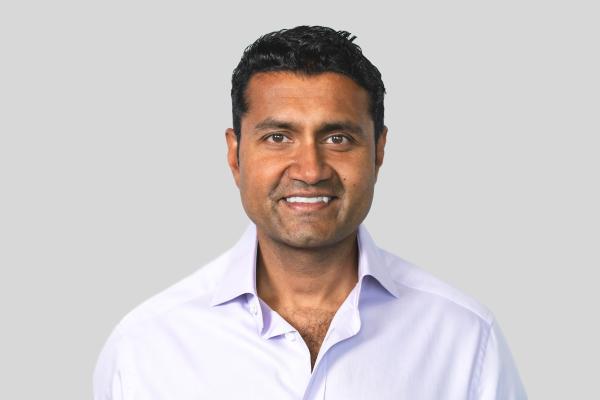
With Walter Russell Mead, Sankar will discuss his strategy to resurrect the American industrial base, win the twenty-first-century defense technology race, and prevent World War III.
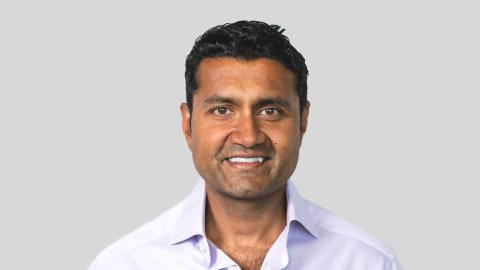

Join Nina Shea for a discussion with Jan Jekielek, author of the new book Killed to Order, about this modern atrocity.
